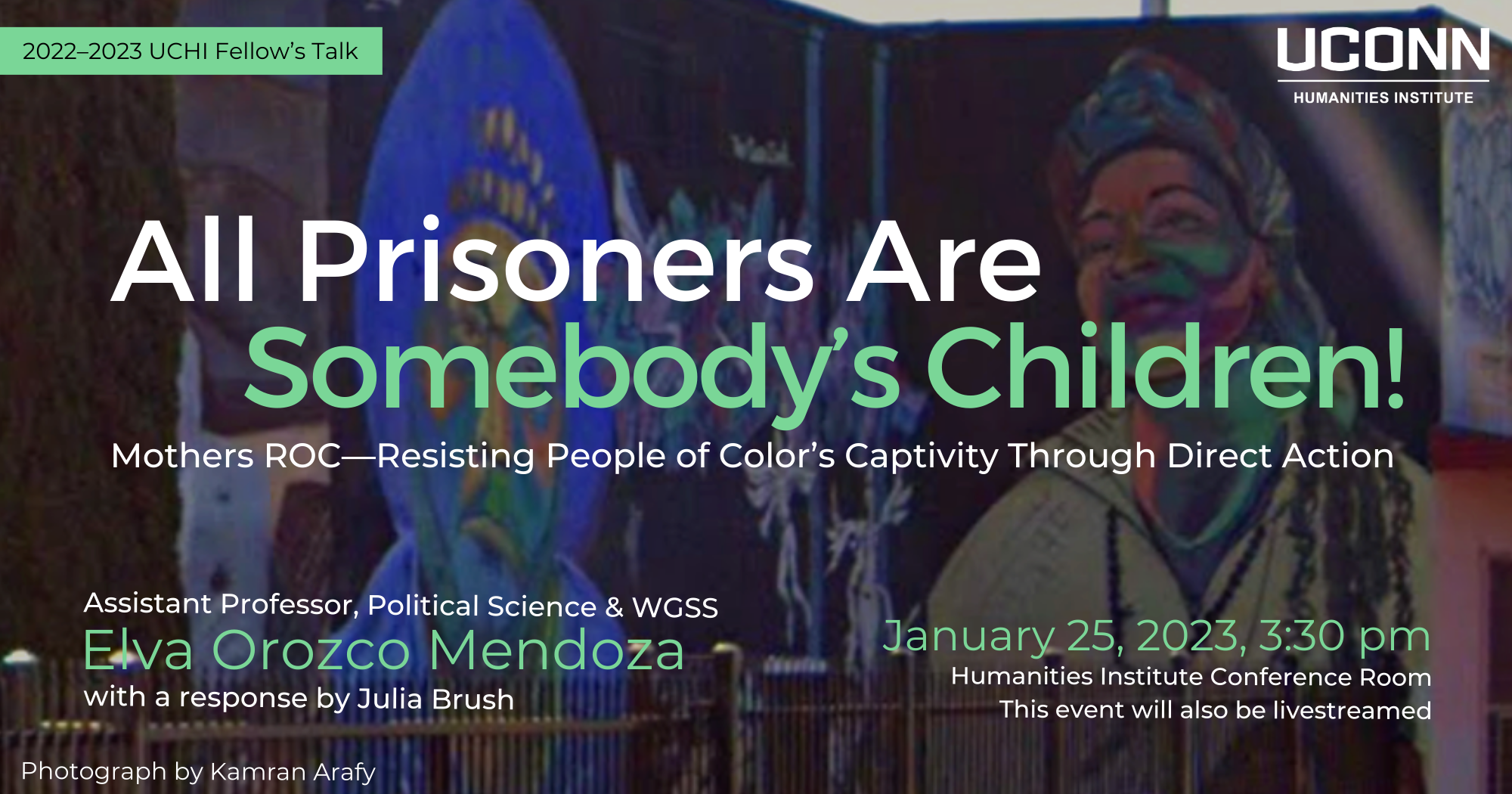All Prisoners Are Somebody’s Children: Mothers ROC—Resisting People of Color’s Captivity Through Direct Action
Elva Orozco Mendoza (Assistant Professor of Political Science and WGSS, UConn)
with a response by Julia Brush (Ph.D. Candidate, English, UConn)
Wednesday, January 25, 2023, 3:30pm, Humanities Institute Conference Room (HBL 4-209)
Add to Google calendar Add to Office 365 calendar Add to other calendar
The event will also be livestreamed with automated captioning.
Following the 1992 uprising in Los Angeles, California, several grassroots organizations emerged to protest the growing imprisonment of Black and Latino men under false or exaggerated charges. One such organization was Mothers Reclaiming our Children, Mothers ROC, formed by women whose children had been incarcerated as they sought to promote a gang truce to bring peace to their neighborhoods. This chapter draws on historical archives, films, web content, and other literary sources to discuss Mothers ROC’s grassroots mobilization against forced separation due to their children’s imprisonment. I argue that Mothers ROC’s activism helped to change the persistent association of Blackness and criminality produced at the highest levels of government by reclaiming motherhood as a political and ethical orientation. While often stigmatized and blamed for fomenting their children’s lawless behavior, Mothers ROC members worked to reclaim their children in several ways. First, by contesting their physical captivity and denouncing the institutions that deliberately fabricated the systematic imprisonment of Black and Latinx youth. Second, by invoking the mothers’ right to tell their children’s stories instead of allowing the state criminalization efforts to go unchallenged. Third, by working to change structural injustice and call public officials accountable for their actions. Lastly, by healing the harm inflicted onto their children and strengthening community ties. As a result, Mothers ROC’s initiatives contributed to longstanding struggles for Black people’s freedom in the United States.
Elva Orozco Mendoza is an assistant professor of political science and women, gender, and sexuality studies at the University of Connecticut. She joined UConn in the fall of 2021 and received her Ph.D. in Political Science from the University of Massachusetts Amherst in February of 2015. Prior to joining UConn, she taught at Texas Christian University and Drexel University. Her research interests include extreme gender violence, democratic theory and practice, protest politics and political action in Latin America, comparative political theory, and coloniality/decoloniality thought. At UConn, she teaches courses in comparative political theory, decolonial feminisms, and Latin American and Latinx feminist theory.
Julia Brush is a doctoral candidate in English with a graduate certificate in Literary Translation at the University of Connecticut. Her research focuses on contemporary poetry and poetics, queer theory, and transnational American studies, critical refugee studies, and Asian American Studies. While at UCHI, she will complete her dissertation, “State/Less Aesthetics: Queer Cartographies, Transnational Terrains, and Refugee Poetics.”
Access note
If you require accommodation to attend this event, please contact us at uchi@uconn.edu or by phone (860) 486-9057. We can request ASL interpretation, computer-assisted real time transcription, and other accommodations offered by the Center for Students with Disabilities.


